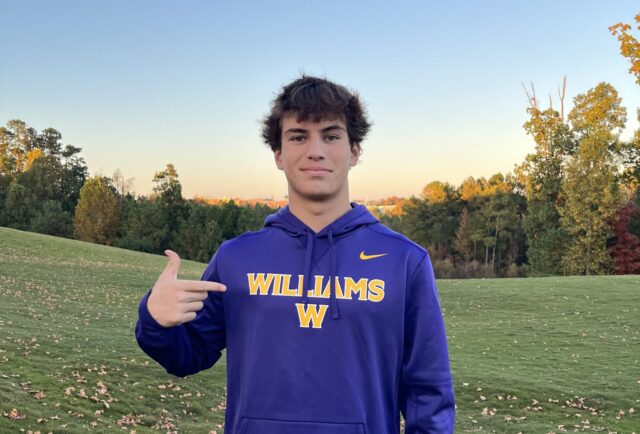
For some people, even a new quarterback is a reason to improve the defense. But why?
There are persistent myths that seem to endure despite the lack of evidence to support them. Chewing gum takes seven years to digest. Humans only use 10% of our brains. Good defenses are a new quarterback’s best friend. Such beliefs seem immune to fact-checking, probably because each one is not a sincere belief, but rather an aphorism that tells us something we want to believe. Some people find the swallowing of chewing gum to be gross. Others want to believe in untapped human potential. And a few want to overstate the importance of defense.
Sure, in the grand scheme of things, defense still matters in football–but it doesn’t seem to matter all that much when it comes to rookie quarterbacks.
Well, actually…
Is having a top defense a boon that is sufficient to help young quarterbacks develop? Well, no. Nope. Nuh uh. In the era of the modern CBA, here are the quarterbacks who went to teams with a composite Top 10 defense in their first year as a starter: Lamar Jackson (2nd), Paxton Lynch (4th), Ryan Tannehill (8th), Mitchell Trubisky (9th), and Johnny Manziel (10th). If you want to expand it to “top eleven” to make it more or less the top third, you can add Carson Wentz and Blaine Gabbert. So, no. Having a top defense is not sufficient to help a rookie quarterback succeed.
By contrast, here are the first-round quarterbacks who achieved at least two Pro Bowls in the first five years of their career (each Pro Bowl is an asterisk), with the composite ranking of their team’s defense in terms of points allowed and points per drive allowed: Patrick Mahomes**** (26th), Josh Allen*** (14th), Cam Newton*** (29th), Andrew Luck *** (22th), Deshaun Watson*** (31st), Lamar Jackson** (2nd), Jared Goff** (19th), Kyler Murray** (19th).
That means that the top new quarterbacks basically had the support of (on average) the 20th-best defense in the league. In fact, of the thirteen first-round quarterbacks to earn at least 60 starts in their first five years, the majority of them (7) played with a defense that was in the bottom third of the league! Clearly, not only is having a top defense insufficient for a new quarterback to develop, it is not a necessary component for developing a franchise quarterback, either.
It seems like the play of the quarterback and the performance of the defense function independently of one another, as if they were separate units. On the field at different times, even.
So what’s the takeaway?
Sometimes it’s not about the defense as a whole, though. There are some people who say that what really matters is getting turnovers. “Rookies need extra chances and shorter fields, something something something…” Patrick Mahomes and Josh Allen both had their first starting years on teams that were in the top ten in terms of takeaways! They were 8th and 6th, respectively. Wait, though – Kyler Murray, Lamar Jackson, Jared Goff, and Andrew Luck all had defenses in the bottom third (averaging 26th in the league overall). Oh bother. Meanwhile, Cam Newton and Deshaun Watson played for teams that were more in the middle of things.
Sure, having the sixth-highest takeaway rate in the league might have helped the Buffalo Bills in general in Josh Allen’s rookie year (although he personally struggled that season), but having the fifth-highest takeaway rate did not seem to do much for EJ Manuel even wearing the same laundry. Andrew Luck’s rookie season saw the Indianapolis Colts’s defense hand him some of the fewest takeaways in the league (they were 28th) and he did fine, even if the New York Giants’ defense was just as unhelpful (28th) for Daniel Jones and he really did struggle.
Which ten new quarterbacks benefitted the most from defensive turnovers? Baker Mayfield, EJ Manuel, Johnny Manziel, Josh Allen, Robert Griffin III, Paxton Lynch, Patrick Mahomes, Brandon Weeden, Carson Wentz, and Blaine Gabbert. Huh. That might be the only place those ten quarterbacks are listed together like that. In fact, if you look at every first-round quarterback in this group to earn a Pro Bowl, the median takeaway rank for their team is 17th, with more in the bottom quarter of the league (5) than the top (3).
It seems like takeaways are, again, not closely linked to how these quarterbacks developed. Yes, turnovers matter overall. Yes, turnover margin is important for a team’s record. However, new quarterbacks don’t particularly seem to get a developmental boost from their defense handing them the ball an extra couple of times.
Just win, QB
What about winning? Surely defense matters there? But somehow it doesn’t, really. First, takeaways aren’t all that necessary here, either. Only seven quarterbacks in this group have at least 50% records, and three of them played with a defense that was in the top ten in takeaways (Mahomes, Griffin III, and Lynch) while three played with a defense that was in the bottom ten (Jackson, Luck, and Bridgewater), with Deshaun Watson splitting the middle when the Houston Texans were 13th in takeaways in his first season. In other words, while takeaways probably helped the Kansas City Chiefs, the Washington Commanders, and the Denver Broncos win games in those seasons, the Baltimore Ravens, Indianapolis Colts, and Minnesota Vikings were just fine without them.
For that same group of quarterbacks, their defenses averaged being 18th-best in the NFL in terms of composite rank in points allowed and points per drive allowed. Even that average is buoyed by the inclusion of Paxton Lynch (1-1 as a starter) with the 4th-ranked Denver defense. Remove him, and the average defensive rank of both groups (winning and otherwise) are identical. Lamar Jackson, Paxton Lynch, and Teddy Bridgewater all played alongside above-average defenses; that probably helped them a little. However, Patrick Mahomes, Andrew Luck, Robert Griffin III, and Deshaun Watson were all winning (or at least not losing) with defenses in the bottom third of the league.
The final nail in the coffin of this myth should be that the four quarterbacks to see the playoffs in their first year starting were Patrick Mahomes (composite 26th-ranked defense), Andrew Luck (composite 22nd-ranked defense), Lamar Jackson (composite 2nd-ranked defense), and Robert Griffin III (composite 24th-ranked defense). Defense did not power the majority of those players to the playoffs. In fact, the only one of those players to win a playoff game in his first season as a starter (Mahomes) also had the worst defense even of this narrow group.
Conclusion
There seems to be no real connection between how well his team’s defense plays when a new quarterback enters the league and how he performs. There are certainly individual cases where players benefitted from having a quality defense to lean on, but there are at least as many cases of rookies doing just fine without one. Takeaways, sometimes heralded as a new passer’s best friend, don’t seem all that essential. Many of the most successful quarterbacks did not have a quality defense, and many of the quarterbacks with a quality defense faltered completely.



















You must be logged in to post a comment Login